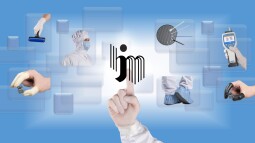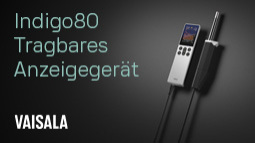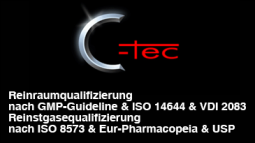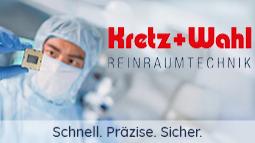MEDICA 2016 + COMPAMED 2016: Trend barometer of a dynamic market
Booking demand confirms a high level of satisfaction with the event’s new schedule
When top decision-makers in the healthcare business meet in Düsseldorf again in the middle of November at the world's leading medical trade fair, MEDICA 2016, (scheduled date: 14 – 17 November 2016; Monday to Thursday), 5,000 exhibitors from around 70 countries will be presenting themselves once more as partners in unchanged enthusiastic innovation – offering tailored solutions for outpatient and clinical care. According to the European Patent Office, in 2015 no other technological sector submitted as many patent applications worldwide as the field of medical technology.
"The course of registrations up until now is showing that the incredibly high level of participation seen in the previous year can be expected again, thereby indicating a high level of satisfaction among exhibitors with the new schedule of the event, running from Monday to Thursday,” explains Joachim Schäfer, managing director of Messe Düsseldorf. He is also pleased about the development of the trade fair for medical technology suppliers being held in parallel, COMPAMED. "Here as well, the change of schedule has been positively accepted by the exhibitors, and the extension of COMPAMED by an additional day has been expressly welcomed. This can also be seen by a high rate of repeat bookings. Once again, we expect a turnout of more than 800 exhibitors in the fully booked COMPAMED halls, 8a and 8b."
Concerning innovations, the market at the moment is characterised by a special dynamic of important supplier trends.
The digitalisation of healthcare is progressing at an unstoppable rate, and this concerns all fields, outpatient and clinical care, as well as patients and physicians alike. With reference to Germany, the latest enacted E-health Act should ensure that the networking of stakeholders within the scope of the healthcare process is considerably optimised by means of a more effective collection and utilization of patient data – at least this has been stated as its clear goal. The predominant "digital patchwork" up until now pertaining to intrinsically sophisticated, but poorly compatible solutions could now be woven into a better overall system using a better integration of data.
Innovations in focus and great prominence “waiting in the wings”
MEDICA 2016 visitors will be able to see for themselves what the digital future in the healthcare sector will be like via the exhibitors’ many innovations as well as the lectures and presentations at the MEDICA CONNECTED HEALTHCARE FORUM (with the MEDICA App COMPETITION) or the MEDICA HEALTH IT FORUM (each in hall 15).
In particular, “wearables” and smartphones in combination with special health apps, which can also be used by patients themselves, have the potential of becoming an indispensable element of networked health in the future. Numerous new products relating to this topic have been already presented at the MEDICA 2015, and countless other mobile health applications are currently under development, whereby many focus on cardiovascular diseases, diabetes as well as the remote monitoring of therapies. Here a particularly high level of user potential can be expected in the future with regard to patient numbers.
The topic of big data also continues to be a focus of visitors' interest. At its core, it has to do with compiling and evaluating enormous amounts of patient data in order to be able to gain knowledge with regard to the development of and effective therapy for certain diseases.
The MEDICA ECON FORUM will also be dealing with the opportunities and consequences of healthcare digitalisation. The forum (in hall 15), organised as a joint effort between the Techniker Krankenkasse (a German statutory health insurance company) and Messe Düsseldorf, has been firmly established as a platform for health policy dialogue, shown by the confirmations of prominent guests to again attend this year’s event. Those who have already confirmed their participation include, among others: The Federal Minister of Health, Hermann Gröhe, the NRW Minister of Health, Barbara Steffens, or also Maria Klein-Schmeink, health policy spokeswoman of the Bundestag parliamentary group Alliance 90/The Green Party (Bündnis 90/Die Grünen).
The third dimension is finding its way into operating theatres
Not only bits and bytes are affecting the healthcare business, however. Medical technology also has exciting topics to offer. At the moment, innovations for interventional procedures are seen as particularly important. In the case of modern surgery procedures, an "integrated" approach is in demand. Data deriving from medical imaging flows into the controls of surgical assistance systems. They can even be generated during surgery by imaging systems directly available in the operating theatre, ensuring that the intervention can take place in a precise and gentle manner. Here, above all, progress in the field of endoscopy and instruments for minimally invasive surgery translate into great benefit.
Currently, the third dimension is increasingly finding its way into operating theatres. In the case of so-called 3D laparoscopy systems, there are two image sensors that are precisely aligned with each other at the end of the endoscope, providing the surgeon with a lifelike endoscopic 3D image during the course of minimally invasive surgery.
Conferences directly integrated into the specialist trade fair
Such important medical technology trends will not only be represented by exhibitor innovations at the MEDICA, but will also be reflected within the scope of the programmes of the accompanying conferences.
For example, these include the MEDICA MEDICINE & SPORTS CONFERENCE, dealing with the use of applications in close proximity to the body and "wearables” for monitoring vital signs, or the MEDICA EDUCATION CONFERENCE.
This conference is being organised this year for the third time by the German Society for Internal Medicine (DGIM) and offers participants an excellent opportunity to gather and exchange information on new technologies and their medical use as part of a scientific training event held in parallel to the world's largest medical trade fair. Of the four conference days, each individual day offers a particular thematic focus. Along with innovations in the field of 3D laparoscopy, among other things, the event will be started off with "New operative techniques during surgery”.
On the other days, the MEDICA EDUCATION CONFERENCE will be dedicated to imaging and interventional procedures (e.g. magnetic resonance tomography and sonography), future technologies for internal medicine (e.g. remote monitoring in the case of chronic disease) as well as, on the event’s last day, “Diagnostics in the fields of internal medicine, laboratory medicine, toxicology and hygiene”.
With reference to the MEDICA conference programme, furthermore, the 39th German Hospital Conference as a leading event for the directors and management of German hospitals, the international DiMiMED conference for specialists from the field of disaster and military medicine as well as the MEDICA PHYSIO CONFERENCE will be forming a close content-oriented link to the topics of the specialist trade fair – aimed toward the specific interests of their respective participant target groups.
Now, and in the future, a central strength of the MEDICA continues to be that it does not just deal with solutions for one individual medical specialist discipline at a time, but that it offers solutions for the complete “workflow” of patient treatment.
The individual focuses of the MEDICA trade fair, which are clearly structured according to hall, include: Electromedicine/medical technology (more than 2,500 exhibitors), laboratory technology/diagnostics, physiotherapy/orthopaedic technology, commodities and consumables, information and communication technology, medical furniture and specialist furnishings for hospitals and doctors’ offices.
COMPAMED – hotspot for complex high-tech solutions
This year, once more in parallel to the MEDICA, the COMPAMED with approx. 800 exhibitors will be taking place for the 25th time. Always scoring top annual results with reference to the number of exhibitors and visitors, it has long since developed into the leading international marketing communication platform for suppliers of the medical technology industry. Where, at one time, simple parts, components and equipment for technical devices and medical products had primarily been presented, today, COMPAMED is a hotspot for complex high-tech solutions.
Here, the microsystem technology solutions for mobile diagnosis, monitoring and therapy systems are particularly in line with the current trend. These include, among others, smart sensors and energy storage systems for use in "wearables", microtechnology applications for intelligent implants or printed electronics. In addition, the subcontracting and outsourcing of services for all elements of the process chain (R&D, production, supply chain management, quality management, spare parts handling, etc.) are continuing to gain in importance.
With 18,800 visitors last year, the COMPAMED broke its best record so far. A total of 130,000 specialist visitors from around 120 countries toured the MEDICA and COMPAMED in 2015.
This unique combination allows MEDICA and COMPAMED to represent the entire process chain and the full range of medical products, devices and instruments. Together, they keep the Düsseldorf trade fair complex (19 halls) fully booked.
As in previous years, it will be possible to visit both events with a single ticket.
Messe Düsseldorf GmbH
40001 Düsseldorf
Germany









